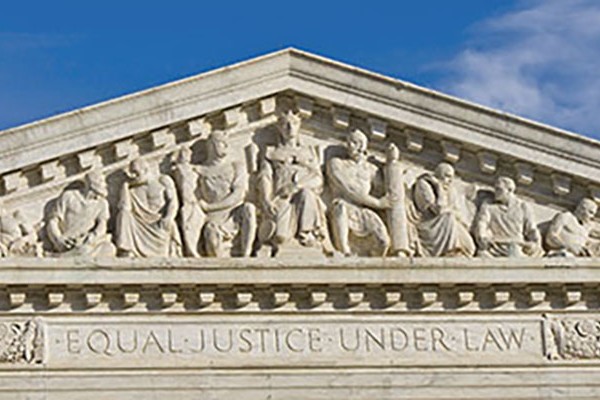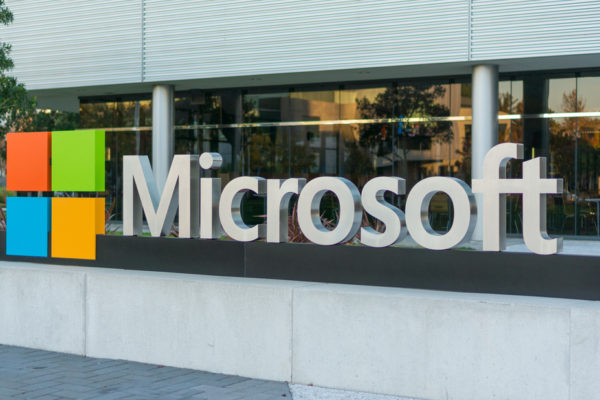WashU Expert: Spokeo decision has potential to expand privacy laws
A recent Supreme Court case that was expected to limit privacy laws actually has the potential to expand them, according to an expert on privacy law at Washington University in St. Louis.
WashU Expert: Microsoft suit a win for civil liberties
Microsoft’s challenge to the gag order provisions of the federal Stored Communications Act should be applauded by everyone who cares about civil liberties, whether in the physical or digital worlds, said Neil Richards, a privacy law expert at Washington University in St. Louis.
WashU Expert: Apple and the expectation of privacy
Apple is fiercely opposing a court order to unlock an iPhone used by San Bernardino shooter Syed Farook. The company is taking an important stand on behalf of its users’ privacy, and should be applauded, said Neil Richards, professor of law and privacy law expert.
WUSTL privacy law expert says Obama’s surveillance reforms a good but incomplete start
3.5 out of 12 — That is the score the Electronic Frontier Foundation gave President Obama’s highly anticipated address on NSA spying last week. And while lauding Obama for recognizing the dangers of government surveillance and the importance of discussing it, Washington University in St. Louis privacy law expert Neil Richards agrees that the president did not quite go far enough to protect individual privacy.
Washington University School of Law brings innovative privacy education to middle school
Washington University in St. Louis law students have begun offering privacy and Internet safety education to local middle school students. Students, under the supervision of WUSTL law professor Neil Richards, JD, are adapting an original middle school curriculum for privacy education developed by Fordham law school’s Center on Law and Information Policy.
Email privacy a hallmark of a free society
As encrypted email services like Lavabit shut their
doors, the importance of email privacy becomes even more clear writes
Neil Richards, JD, privacy law expert and professor of law at Washington
University in St. Louis, in a recent CNN opinion piece.
Increasing surveillance a dangerous reaction to Boston bombings, says privacy law expert
In the aftermath of the Boston Marathon bombings,
some people are calling for an increase in surveillance cameras
throughout U.S. cities. “This would be a mistake,” says Neil
Richards, JD, privacy law expert and professor of law at Washington
University in St. Louis. “It would be dangerous to our civil liberties,
and it would be bad policy.” Richards
gives his personal reaction to the Boston bombings and offers three
reasons why increasing the number of surveillance cameras would be an
unnecessary response to recent events in a CNN opinion piece, “Surveillance State No Answer to Terror.”
Law requiring Internet posting of executive branch employees’ financial information delayed
On Dec. 7, President Barack Obama signed legislation to delay implementation of the STOCK (Stop Trading on Congressional Knowledge) Act, which would require Internet posting of the annual financial interest forms for 28,000 executive branch employees. A law, WUSTL Congressional ethics expert Kathleen Clark says, that will not prevent Congressional insider trading.
Weakening Video Privacy Protection Act a dangerous attack on intellectual privacy
Most people would rather not have their video viewing habits easily available to the public — no need for co-workers to know about your love of reality TV. The Video Privacy Protection Act of 1988 (VPPA) protects these records, but the House of Representatives — at the urging of Netflix and Facebook — recently voted to amend the VPPA, allowing companies to share movie watching habits much more easily. “What’s at stake is intellectual privacy — the idea that records of our reading habits, movie watching habits and private conversations deserve special protection from other kinds of personal information,” says Neil Richards, JD, professor of law at Washington University in St. Louis.
Privacy legal fights should focus on intrusion, not hurt feelings (VIDEO)
Privacy lawsuits in the United States usually seek damages for revealing embarrassing but true facts by the media— the so-called “disclosure tort” — but this is a “poor vehicle for grappling with the problems of privacy and reputation in the digital age,” says Neil M. Richards, JD, privacy law expert and professor at Washington University in St. Louis School of Law. “The disclosure tort has never really worked successfully,” he says. “It’s largely unconstitutional.” Richards notes that there are two existing privacy law concepts that may be good supplements or even replacements to the disclosure tort.
View More Stories



